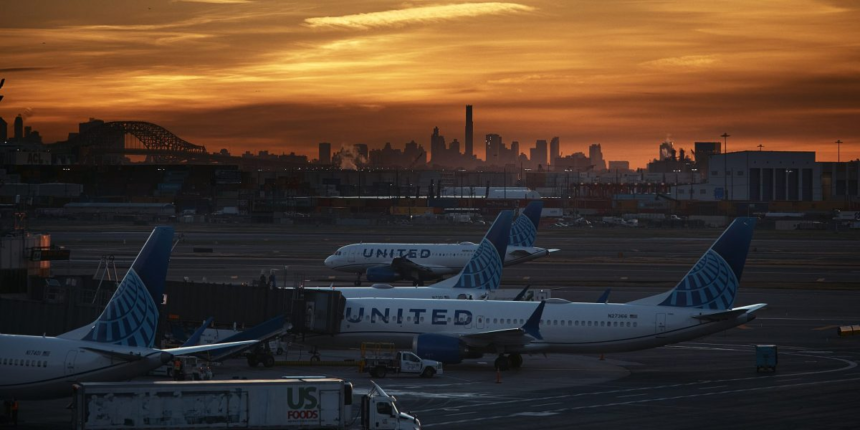While the FAA order left some passengers scrambling to figure out backup plans, most travelers were relieved to find their planes were still on schedule as the airlines slowly phases-in reductions at the nation’s busiest airports.
More than 800 flights were called off nationwide — four times the number canceled Thursday, according to FlightAware, a website that tracks flight disruptions. Not all were due to the FAA order.
Airports in Chicago, Atlanta, Denver, Dallas and Phoenix led the way with the most disruptions, FlightAware said.
Not all travelers were fortunate though.
Karen Soika from Greenwich, Connecticut, told her Uber driver she had to get to the airport in Newark, New Jersey, right away Friday morning to catch her flight to Utah for a weekend trip. She had just learned it was rebooked for an hour earlier. But she later learned her plane was actually leaving from New York’s John F. Kennedy International Airport, instead, at least an hour away.
“I’m a surgeon, I’m used to chaos,” she said. She unsuccessfully tried to book a rental car.
“I’m going to U-Haul and I’m going to drive a truck cross country to get back to Utah,” said Soika, who’s advising on medical scenes there for a spinoff of the TV series “Yellowstone.”
“We are operating today over 6,000 flights,” David Seymour, chief operating officer for American Airlines, told ABC’s “Good Morning America.” Now we’ve had to cancel as part of this directive 220 flights today and that will be the same number through the weekend, until we start ramping up. We have been working tirelessly throughout, around the clock, to ensure that we’re minimizing the disruption to our customers.”
“We join the airlines in urging Congress to swiftly pass a clean continuing resolution and restore certainty for travelers,” wrote Hertz CEO Gil West. “Every day of delay creates unnecessary disruption.”
Many of the routes slashed on Friday were shuttle flights in the Northeast and Florida along with those between Dallas and smaller cities, according to aviation analytics firm Cirium.
The FAA said the reductions would start at 4% and ramp up to 10% a week from Friday. They are to be in effect between 6 a.m. and 10 p.m. and will impact all commercial airlines.
The agency said the cuts are necessary to relieve pressure on air traffic controllers who have been working without pay for more than a month. Many are pulling six-day work weeks with mandatory overtime, and increasing numbers of them have begun calling out as the financial strain and exhaustion mount.
“You can’t expect people to go in to work when they’re not getting a paycheck,” said Kelly Matthews of Flat Rock, Michigan, a frequent business traveler who has canceled most of her upcoming trips. “I mean it’s not a matter of them not wanting to do the job — but you can’t afford to pay for gas, your day care and everything else.”
Ending the shutdown would ease the situation for controllers, but the FAA said the flight cuts will remain in place until their safety data improves.
Carriers are required to refund customers whose flights are canceled but not to cover secondary costs such as food and hotel accommodations unless a delay or cancellation results from a contributing factor that is within the control of the airlines, according to the Department of Transportation.
___
Associated Press journalists Hallie Golden in Seattle; Safiyah Riddle in Montgomery, Alabama; Wyatte Grantham-Philips and Charles Sheehan in New York; and Ted Shaffrey in New Jersey contributed.









